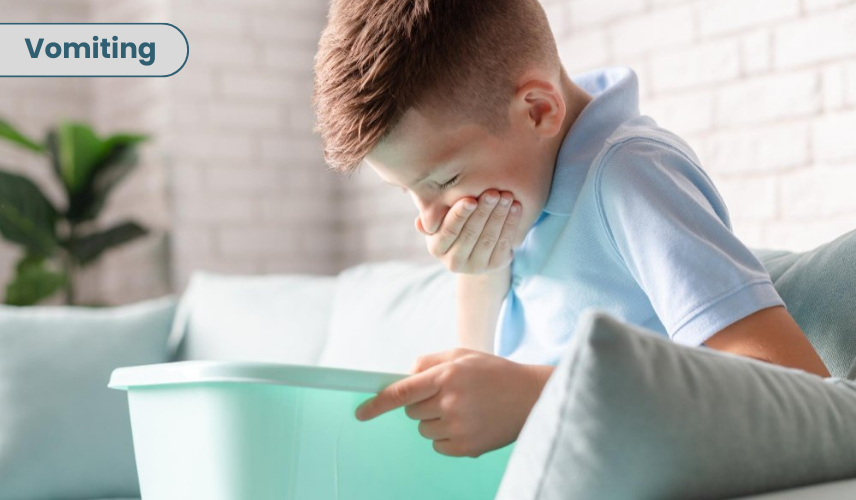
Vomiting
Understanding Vomiting: When to Worry and What to Do
Vomiting is a common symptom in children and infants, often caused by mild infections or digestive disturbances. While it can be distressing for both the child and parents, most cases resolve on their own. However, persistent or severe vomiting may signal an underlying issue that needs medical attention.
Common Causes of Vomiting
- Viral infections (stomach flu or gastroenteritis)
- Food intolerance or food poisoning
- Motion sickness
- Overeating or eating too quickly
- Acid reflux (GERD)
- Blocked intestine or bowel obstruction (in infants)
- Migraine or other neurological causes
- Urinary tract infections
- Appendicitis (if accompanied by abdominal pain)
When to See a Pediatrician
Seek medical attention if your child experiences:
- Vomiting for more than 24 hours
- Signs of dehydration (dry mouth, sunken eyes, no tears when crying, reduced urination)
- Severe abdominal pain or bloating
- Vomit with blood or bile (green or yellow fluid)
- High fever or lethargy
- Headache or stiff neck
- Refusal to eat or drink anything
As a Pediatric Gastroenterologist, I evaluate not just the symptoms, but the overall digestive health of your child. Recurrent or unexplained vomiting may indicate conditions like reflux disease, food allergies, GI infections, or metabolic or structural issues in the digestive system.
How I Can Help
At my clinic, we use a child-focused approach to diagnose and manage vomiting through:
- Clinical evaluation and dietary history
- Blood tests and imaging (if needed)
- Management of dehydration
- Nutritional counseling
- Long-term care for chronic conditions like reflux or gastrointestinal disorders.
.png)